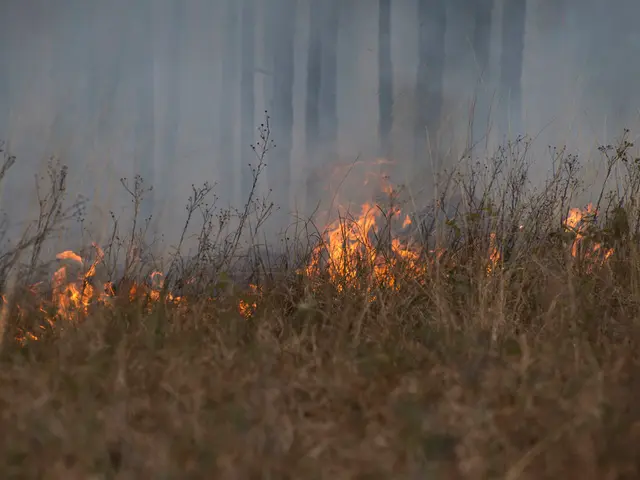Deep-blue state officials face growing opposition due to tripled energy bills, with their rule in jeopardy as critics question their defense of the price increase.
New Jersey residents are grappling with rising electricity costs and an increased reliance on out-of-state power generation, a situation that has been linked to the closure of nuclear and coal plants in the state since 2017.
Under Governor Phil Murphy's administration, six major power plants, including five coal-fired stations and the Oyster Creek Nuclear Generating Station, have been shut down. Critics argue that these closures have contributed to reduced in-state generation capacity, leading to higher consumer costs and increased reliance on electricity imports to meet demand.
The New Jersey Board of Public Utilities (BPU) approved a 17-20 percent hike in energy costs for the majority of households in the state, a move that has sparked criticism from residents and political opponents alike. Republican Jack Ciattarelli, who is running to unseat Governor Murphy in the 2026 gubernatorial election, has used the high energy costs to criticize state Democrats, claiming their ambitious ideas have impacted the wallets of state residents.
One resident told Fox News of their shock and disappointment over the price gouging, with a woman stating her electricity bill increased by $200. The BPU has attempted to alleviate some of the financial burden by announcing $100 in credits to curb the rising energy costs, with monthly electricity bills reducing by $50 in September and $50 in October. However, Commissioner Zenon Christodoulou stated that the credits should be helpful but do not solve the problem.
The cancellation of the Atlantic Shores wind project, which aimed to power almost one million homes, has created significant uncertainty and potential for offshore wind project delays. Plans to build offshore wind farms in New Jersey have been halted due to opposition from the Trump administration, further complicating the state's energy situation.
Democratic nominee for governor, Mikie Sherill, has blamed the region's grid operating company for the high energy costs. Governor Murphy, on the other hand, touts offshore turbines as the way forward, but none of them have yet to be completed due to issues around costs.
The correlation between New Jersey’s closure of nuclear and coal plants starting around 2017 and a subsequent increase in energy costs and dependence on out-of-state electricity generation is a topic of ongoing debate. While Murphy and his administration argue for expanding renewable energy sources like solar to provide cleaner power and eventually lower costs, critics maintain that the phase-out of established baseload plants has contributed to the current energy crisis.
[1] New Jersey's energy costs soaring under Murphy's watch
[2] Analysis: New Jersey's energy costs and the shutdown of nuclear and coal plants
[3] New Jersey's energy policy under scrutiny as costs rise
[4] New Jersey's energy costs: A complex transition
[5] New Jersey's energy crisis: A self-inflicted wound
[1] Business news reports reveal a surge in energy costs for New Jersey residents under Governor Phil Murphy's administration.[2] Many political analysts and critics argue that the closure of nuclear and coal plants in New Jersey, started in 2017, has contributed to the increase in energy costs and dependence on out-of-state electricity.[3] Health and economic general-news sections are focusing on the high electricity costs in New Jersey, with politicians like Jack Ciattarelli using the issue to criticize the state's energy policies.[4] News outlets explain the complex transition in New Jersey's energy landscape, including the shutdown of power plants and the ensuing reliance on imported electricity, as well as the delayed implementation of renewable energy sources.[5] Political debates continue about the root causes of New Jersey's rising energy costs and whether the phase-out of established baseload plants has inadvertently led to the current energy crisis.








